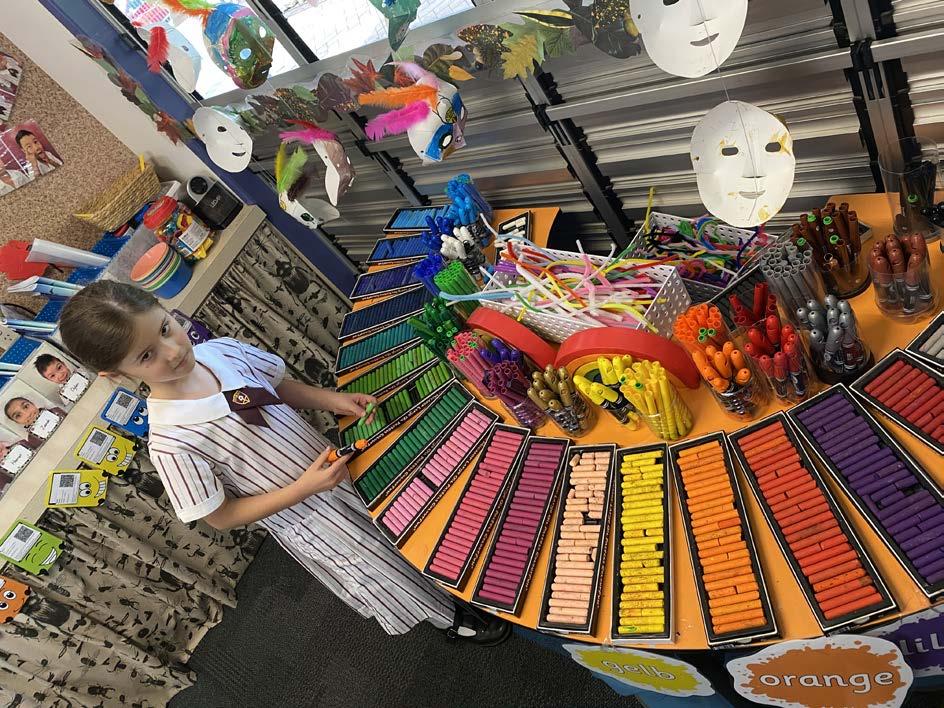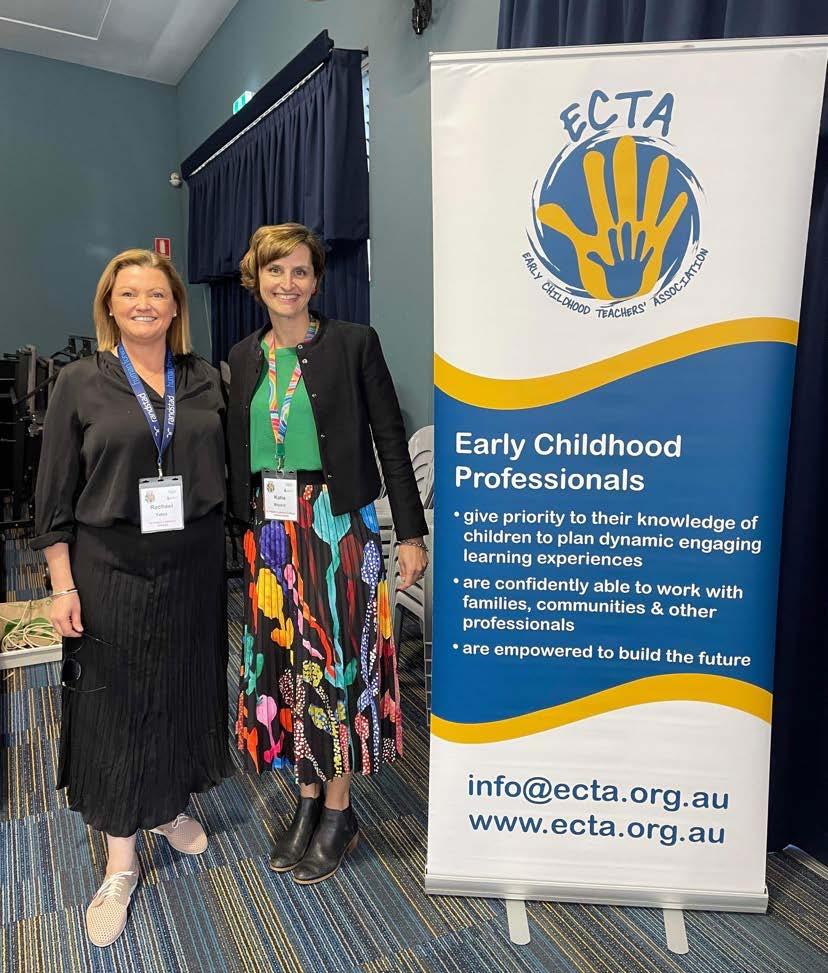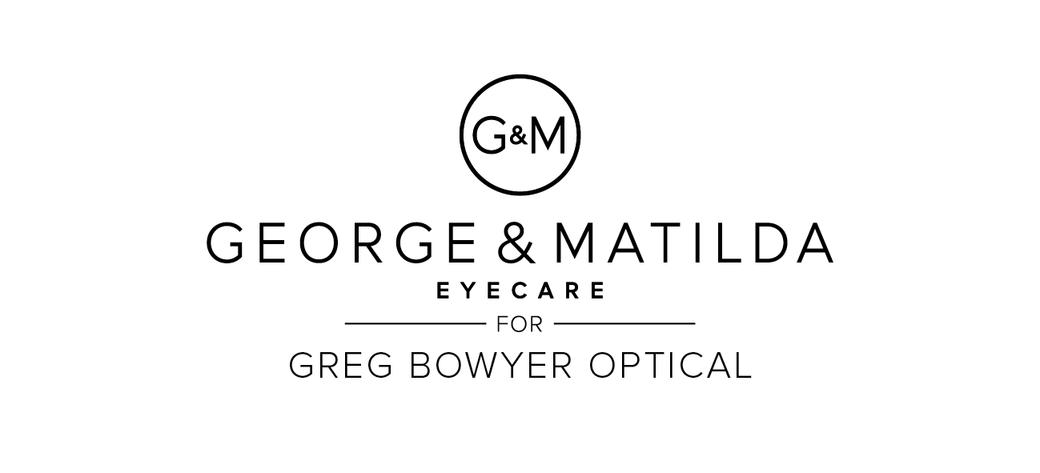
4 minute read
Agency in the early years - Voice, Choice and Ownership
Agentic Learners are those who have the power to control their own goals, actions, and destiny. eLearning Coordinator, Rachael Yates, and Year 1 Teacher, Katie Bryant, are discovering new ways to embrace this learning.
RACHAEL YATES eLearning Coordinator During 2020 and 2021—in between COVID chaos—Katie Bryant, Prep Teacher at the time, and Rachael Yates, eLearning Coordinator, discovered they had a common passion and mindset for innovative educational practices including ways to develop agentic learners. The two teachers also found alignment in their desire to continually grow and learn as educators, with student outcomes at the forefront of all they do. This came about through working together in various ways such as in class support and on curriculum related tasks. Katie and Rachael started looking at techniques to increase agency, both with and without digital tech such as iPads and apps. Through their work together, Katie observed that her students, in Prep and now, Year 1, have thrived, and this has been achieved through giving them greater voice and choice over the ways they demonstrate their learning, in conjunction with a conducive classroom environment. This helped shape the teachers’ desire to change and try out new approaches. Katie and Rachael have been busy over the last year offering external presentations based on their passion and research around their findings to other early childhood professionals. This has included an ECTA (Early Childhood Teachers' Associate) Conference, the St John's Early Years Stem Conference, as well as an article in the ECTA Journal titled, Agency in the Early Years. Their hope is to inspire other teachers to think about simple steps they can undertake to build or support learner agency. In their research and trials, it was observed that agency can be achieved by simply allowing choice in regular daily routines. For example, allowing students to choose colours, books, where they sit, who they work with. Setting up a classroom to empower and enable an early years student safely access resources has been an important consideration in classroom set up and design. These small choices may seem trivial to the teacher, but to young learners it can show them that they are active participants in the learning, and that their input is important. Through their research and trials, the two teachers believe some of the key areas that can help foster student agency are through environment, relationships, collaboration, learner skills, pedagogy (teaching and learning methods) and, of course, curriculum. As a Primary Years Programme (PYP) school, the teachers and students start off the year by creating an 'essential agreement'. In the classroom, this means that, rather than teachers imposing rules, everyone works collaboratively to establish an agreement of how the class will function, thereby giving students voice in the classroom management, and in a tone that values learning over behaviour. Another feature of a PYP school is the student directed ‘Learning Journal’ (often called a Portfolio). Students are responsible for maintaining their own ‘Learning Journal’ where they collect and add pieces of work throughout the week and term. Our students own this process by selecting the work and choosing where and how they share their knowledge on a topic or concept. To support young learners, teachers may scribe and help the student to annotate their work. In addition, iPads have been used to allow students to record their voice explaining a concept or their understanding and teachers
Pictured (from left): A student exploring all the different colour pastels and pens; Rachael Yates and Katie Bryant at the ECTA Conference.

have then saved the recording, making a QR code for parents to scan and listen to their little learner's voice. An example of building student agency towards assessment that the Year 1 team has been trialling, is the co-construction of assessment rubrics. Students work with the teacher to decide how a task will be marked, in other words, what would make the task successful. Whilst the teacher has curriculum elements in mind, together a rubric is developed, and students can refer back to this as they complete the task. Students then provided each other with peer feedback based on the rubric. This has been very successful and highlights how capable our young learners are to think critically and maturely when afforded the opportunity. Students used language that they understood, and it challenged the notion that the teacher is not the only expert in the room able to make judgement. Katie and Rachael are expanding this work further into the Primary Years at St Peters by sharing their learning and ideas with others. They firmly believe that enabling student agency in the classroom is best practice as it allows for motivated, engaged, and active learners. Also, agency is a key attribute of the PYP so a feature of all classrooms at St Peters in the Primary Years.
Y O U R L O C A L T R U S T E D O P T O M E T R I S T

Full Scope Eye Examinations Including Testing For Eye Pathology Digital Retinal Imaging Myopia Management Contact Lens Fitting Ortho K Lenses ZEISS Lenses Latest Designer Eyewear Styles Health Fund Instant Claims
Kenmore Village Ph. 07 3878 1800










